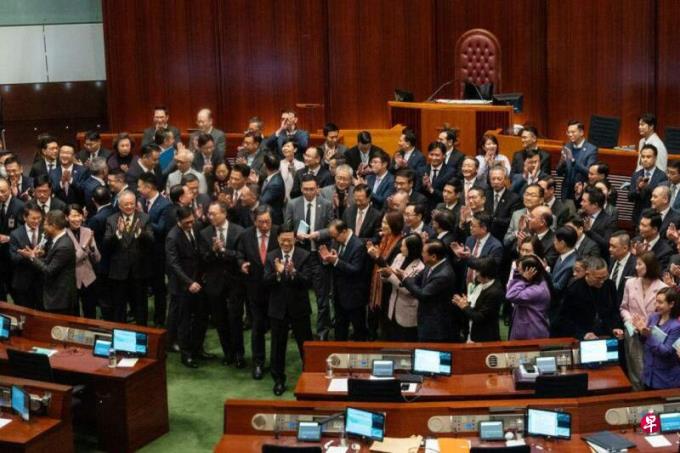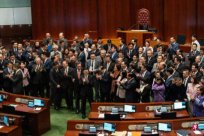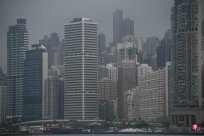
(Hong Kong Comprehensive News) The three readings of the Hong Kong Legislative Council passed the draft national security regulations that were adopted by Article 23 of the Basic Law.Hong Kong Chief Executive Li Jiachao said that the bill will take effect on Saturday (March 23), and described this as a historical moment for the Hong Kong government and the Legislative Council to complete the glorious mission.
Comprehensive Ming Daily Star Island Daily and online media "Hong Kong 01" and other reports, after the Hong Kong Government submitted the bill to the Legislative Council on March 8, after a day -to -day intensive review and meeting, the parliament will open a special meeting on Tuesday (March 19) again.The 89th members of the Council passed the draft in the evening of the Council, and Liang Junyan, chairman of the Legislative Council, voted more.
Bloomberg: The draft law has been approved as soon as the draft law has been approved since the return of Hong Kong
Bloomberg reported that this was the fastest approved by the law since Hong Kong returned to China in 1997.
Li Jiachao entered the Legislative Council after passing the draft.According to the news bulletin issued by the Hong Kong Government, he said in the opening white: "Today is the historical moment of Hong Kong. It is the historical moment of Hong Kong waiting for 26 years, 8 months and 19th.The history of the glorious mission will finally be completed together, which is the pride moment of the Hong Kong Special Administrative Region to compose a glorious history.
Li Jiachao also mentioned that this year is the tenth anniversary of the Chinese government's official concept of the overall national security, and said that the completion of the legislation on Tuesday was "to live up to the central entrustment and the trust of the country."He said the draft will be announced and effective in the Constitution of the issue of Saturday.
The Hong Kong government promoted legislation in 2003, but caused hundreds of thousands of people to withdraw after the street demonstration, and has not been able to legislate since then.
Among them, the crime of rebellion and the crime of rebellion can be sentenced to life imprisonment once he was convicted; publicly stated that he was convicted of the crime of rebellion and was sentenced to 14 years;, Punishment can be sentenced to 10 years.
As for illegal disclosure of state secrets, it can be sentenced to 10 years, and at the same time, the exemption of "public interest" can be stated, but the condition is that the relevant disclosure involves seriously affecting the government's enforcement functions in accordance with the law, or the constituent of public order, public safety or public health compositionserious threat.
Earlier, the U.S. State Department had issued a statement that the definition of overseas intervention and national secrets was vague, and the official may use arrest and detention methods to crack down on different things.
The BBC (BBC) Chinese website quoted a Hong Kong employee Walter, a Western consulate in Hong Kong in Hong Kong, said that if you are familiar with the bill, you will know that it is not easy to step on the red line. "I don't particularly worry about personal safety."
Walter also said: "You have written the definition of 'overseas forces' so prominently in the bill, and it will be simple to criticize who to criticize the overseas forces in the future.Active contact with 'overseas forces'? How can Hong Kong's so -called "super contacts" roles be going on?
According to Agence France -Presse, the head of the United Nations Human Rights Affairs, Volker Turk, condemned Hong Kong in a statement in a statement on Tuesday, and criticized this move as "the retrogression of human rights protection."




